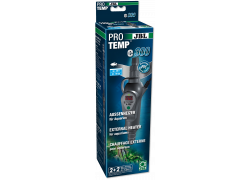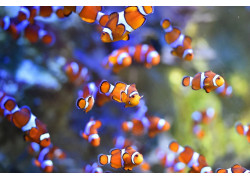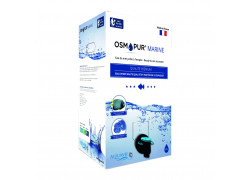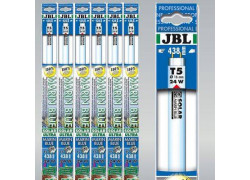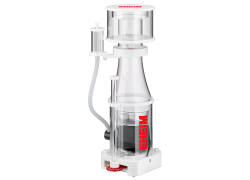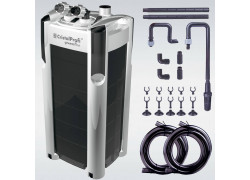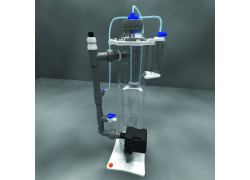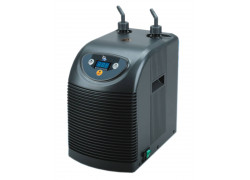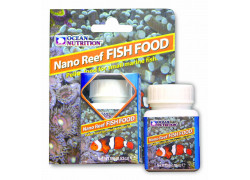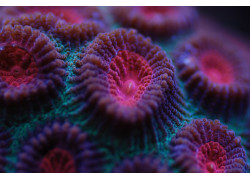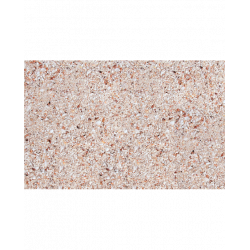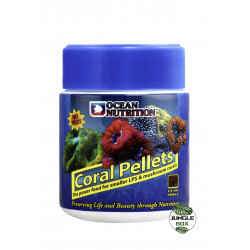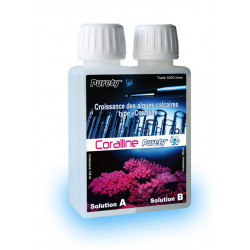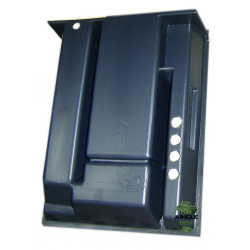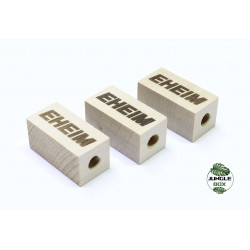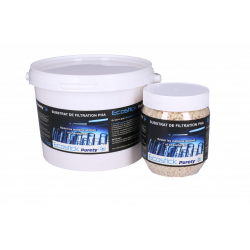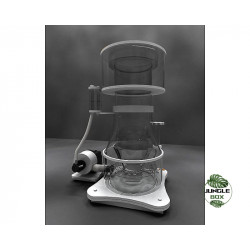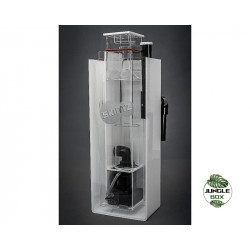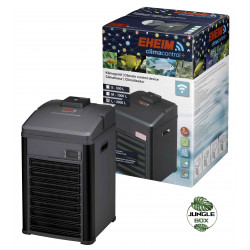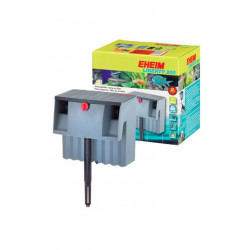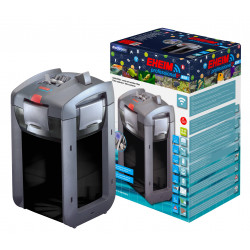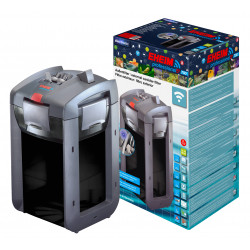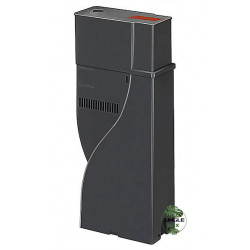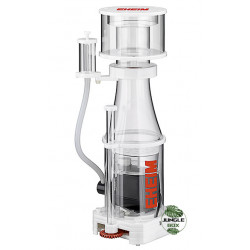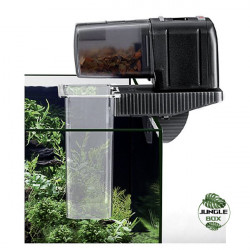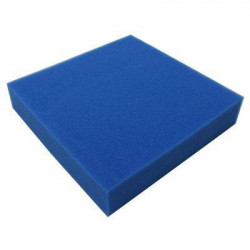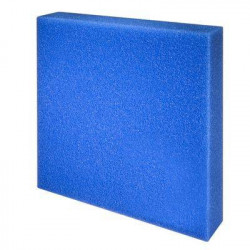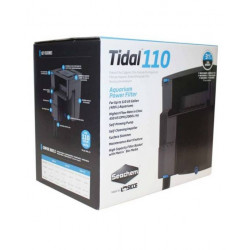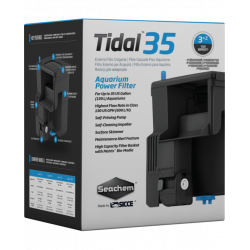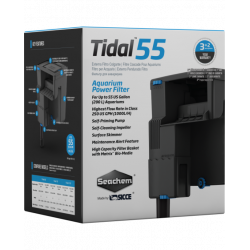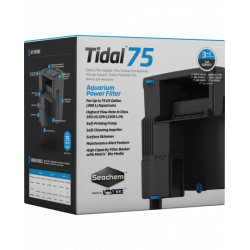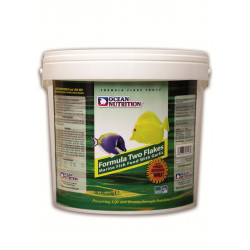Subcategories
-
Chauffage
Heating for a saltwater aquarium is essential to maintain stable and appropriate temperatures for marine inhabitants. Marine fish and invertebrates often have strict temperature requirements, and reliable heating is necessary to replicate the conditions of their natural environment. There is a range of heaters specially designed for saltwater aquariums, offering features such as temperature precision, safety, and corrosion resistance to withstand saline conditions. Well-chosen heating contributes to the well-being and health of your marine inhabitants, and it's important to regularly monitor water temperature to ensure optimal conditions.
-
Décante
A aquarium sump is a filtration system that removes waste and toxins from the water. It typically consists of a chamber where water flows slowly, allowing suspended particles to settle, and a section containing filter media to remove harmful substances. Sumps can be integrated into the aquarium or be external units. They play a crucial role in maintaining water quality and the health of aquarium inhabitants.
-
Eau prête à l'emploi
-
Eclairage
Lighting for a saltwater aquarium is crucial for the growth of corals and marine plants, as well as to showcase the beauty of marine inhabitants. Here are some considerations when choosing lighting for your saltwater aquarium:
-
Light Spectrum: Choose lights with a spectrum suitable for the needs of corals and marine plants. LED lights are often recommended as they offer customizable light spectrums and are energy-efficient.
-
Light Intensity: Ensure the lighting provides adequate intensity for coral and marine plant growth. Adjust the height and intensity of the lights based on the depth of your aquarium and the specific needs of your marine inhabitants.
-
Lighting Cycle: Establish a regular lighting cycle to mimic the natural day-night cycle. Corals and marine plants benefit from a period of darkness to rest and regenerate.
-
Lighting Duration: Limit the daily lighting duration to around 8 to 10 hours to avoid overheating the aquarium and excessive algae growth.
-
Lighting Control: Opt for lighting systems with control features such as dimming, dawn and dusk simulation, and automatic programming. This allows you to customize the lighting based on the specific needs of your saltwater aquarium.
In summary, choose LED lighting with a suitable light spectrum, ensure adequate light intensity, establish a regular lighting cycle, and use control systems to customize the lighting for your saltwater aquarium.
-
-
Ecumeur
A protein skimmer for a saltwater aquarium removes organic waste and dissolved proteins from the water using air or water bubbles. Choose an appropriate size for your aquarium and perform regular maintenance to maintain its effectiveness. Place it near the water surface for better waste capture.
-
Filtration
Filtration in a saltwater aquarium is crucial for maintaining clean and healthy water. It involves mechanical, biological, and chemical filters that trap waste and remove toxins. Regular maintenance is necessary to ensure their proper function.
-
Réacteur
A reactor in a saltwater aquarium is crucial for several reasons:
-
Targeted Filtration: Reactors are used for specific filtration processes, such as removing phosphates or nitrates.
-
Nutrient Reduction: Some reactors, like fluidized bed reactors, eliminate unwanted nutrients to prevent excessive algae growth.
-
Aeration and Circulation: Certain reactors contribute to oxygenating the water and maintaining appropriate mineral levels.
-
Water Parameter Control: They help regulate water chemistry parameters, such as pH and hardness.
-
Coral Growth: Some reactors provide essential nutrients for coral health and growth.
In summary, reactors are essential tools for maintaining the health and balance of a saltwater aquarium.
-
-
Refroidissement
-
Nourriture
"Large Range of Saltwater Fish Food"
-
Coraux
Maintaining corals in aquariums requires careful attention to ensure their long-term health and well-being. Here are some tips for coral care in a reef aquarium:
-
Water Parameters: Regularly monitor water parameters such as temperature, pH, salinity, and levels of calcium, alkalinity, and magnesium. Maintaining stable and appropriate parameters is essential for coral health.
-
Lighting: Ensure that corals receive adequate and appropriate lighting for their type. LPS (Large Polyp Stony) and SPS (Small Polyp Stony) corals have different lighting requirements, so be sure to choose lamps suitable for your corals.
-
Water Circulation: Proper water circulation is important to provide nutrients and oxygen to corals, as well as to remove waste and toxins. Use circulation pumps to create suitable water movement in the aquarium.
-
Feeding: In addition to nutrients provided by symbiotic zooxanthellae, some corals also benefit from direct feeding. Offer them coral-specific food supplements such as zooplankton, phytoplankton particles, or special liquid coral foods.
-
Cleaning: Regularly remove debris and unwanted algae from corals and the aquarium. Use a soft brush or siphon to clean corals without damaging them.
-
Monitoring: Carefully observe the appearance and behavior of corals. Be alert to signs of stress, such as bleaching, tissue retraction, or loss of color, and take prompt action if any issues arise.
-
Water Changes: Perform regular water changes to maintain water quality and remove accumulated undesirable substances in the aquarium.
By following these guidelines and providing appropriate care, you can maintain healthy and vibrant corals in your reef aquarium, creating a beautiful underwater landscape to admire.
-
-
SEL
The Sel is a high-quality natural salt produced through evaporation in the Red Sea. It is then enriched with macro-elements using products of high purity, free from ammonia, phosphates, and nitrates. This blend ensures the best results even for the most delicate of fish and corals.
-
marine technical...
Marine aquarium technical substrates are essential for maintaining an optimal environment for corals, fish, and other marine organisms. These substrates are specially formulated to promote coral growth by providing necessary nutrients and stabilizing water parameters. They may include mixes of sand, live rock, and other materials that support biological filtration and help maintain water clarity. Choose a substrate suitable for your marine aquarium to ensure the health and prosperity of your marine inhabitants.

